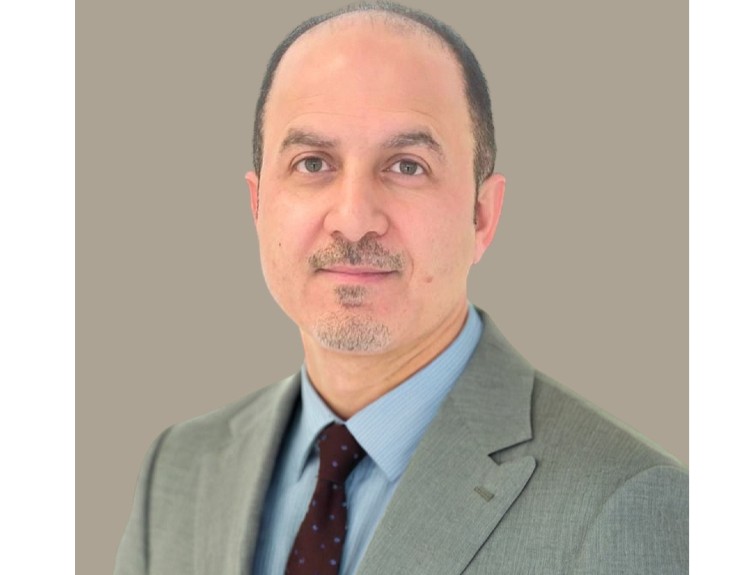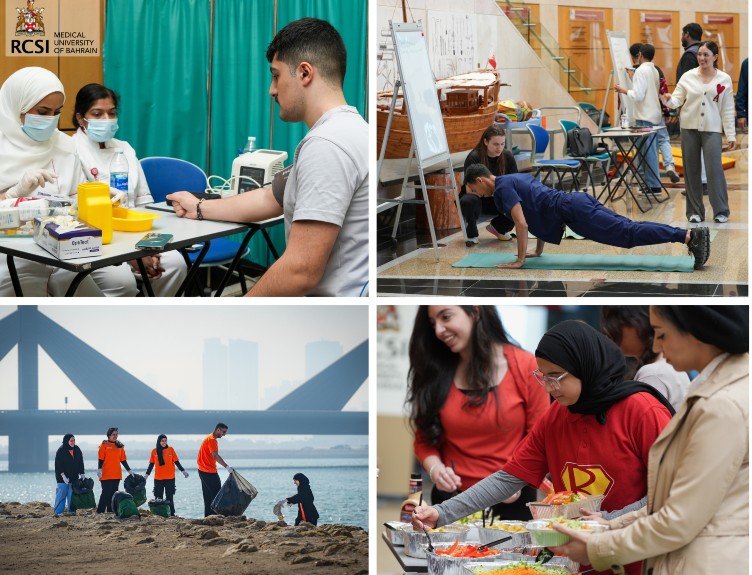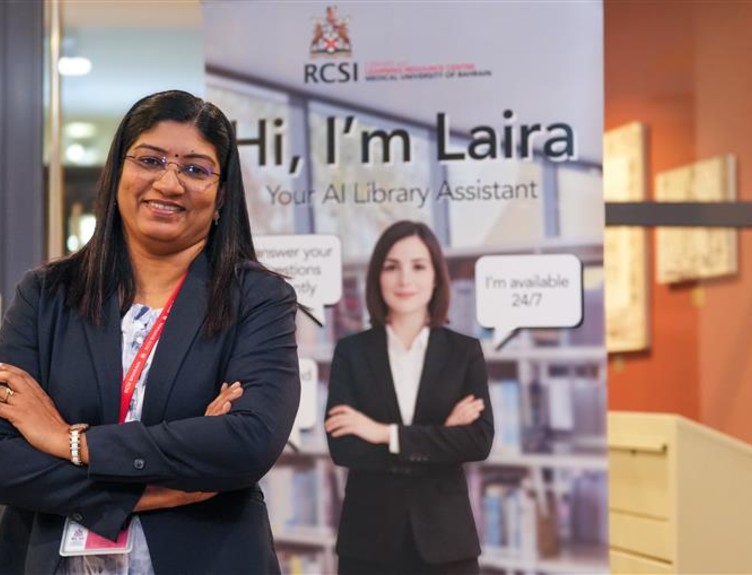RCSI Medical University of Bahrain and Royal Medical Services Announce Breakthrough in Wound Healing Research for Diabetic Patients

Research partnership advances the Kingdom of Bahrain’s healthcare innovation ecosystem and showcases GCC pre-clinical research excellence through pioneering biomaterial technology for chronic wound healing.
The Royal College of Surgeons in Ireland (RCSI) in Dublin, RCSI Medical University of Bahrain, and the Royal Medical Services (RMS) have announced the successful advancement of a joint research project focused on improving wound healing through innovative biomaterial technology and the development of a novel medical device.
Under the leadership of His Excellency Brigadier (Professor) Fahad Khalifa Al Khalifa, Commander of the Royal Medical Services; Professor Stephen Atkin, Head of the School of Postgraduate Studies and Research at RCSI Medical University of Bahrain; and Professor Fergal O’Brien, Deputy Vice Chancellor for Research & Innovation and Head of Tissue Engineering Research Group (TERG) at RCSI in Dublin, this research partnership has achieved promising pre-clinical results in developing a novel wound healing biomaterial.
The project has united clinical and scientific expertise from Bahrain and Ireland, led by Professor Michael Keogh, Associate Professor in Human Biology and Head of Tissue Engineering Research Group (TERG) at RCSI Medical University of Bahrain, and Dr Mohammed Al Muharraqi, Director of the RCSI–RMS Research Collaboration and Director of the Crown Prince Centre for Training & Medical Research at RMS, with the support of Dr Martin Maresch, Vascular and Endovascular Surgeon at RMS and a team of eleven research and medical professionals. Together, they have developed and demonstrated the potential of a new biomaterial that promotes tissue repair by enhancing blood vessel formation and reducing tissue scarring, resulting in improved healing compared with traditional clinical dressings. Pre-clinical findings have demonstrated that the biomaterial integrates effectively with surrounding tissue, encouraging more complete healing in ageing and diabetic conditions.
The most recent phase of the team’s research has been to support the DocLeaf project focused on developing a next-generation medical device designed to treat chronic wounds, which received €1 million in research funding from Enterprise Ireland. The new device aims to address localised tissue hypoxia and stimulate the body’s natural tissue repair mechanisms, leading to faster and more sustainable healing outcomes. Over the past 18 months, this project has successfully progressed from an initial concept developed by RCSI in Dublin to the first in vivo study conducted at the RMS Crown Prince Centre for Training and Medical Research in Bahrain.
Dr Mohammed Al Muharraqi, Director of the RMS- RCSI Medical University of Bahrain Research Collaboration and Director of the Crown Prince Centre for Training & Medical Research, commented on the announcement: “The progress achieved with the DocLeaf project stands as a testament to our expertise to conduct advanced biomedical research and underlines the Kingdom of Bahrain’s growing role in pioneering medical research that contributes to global healthcare challenges.”
Professor Sameer Otoom, President of RCSI Medical University of Bahrain, added: “This initiative highlights the strength of our international research collaborations and our commitment to improving health outcomes through scientific discovery. Our goal is to translate these medical treatment findings into practical solutions that directly enhance patient care.”
Professor Fergal O’Brien, Deputy Vice Chancellor for Research & Innovation and Head of Tissue Engineering Research Group (TERG) at RCSI in Dublin added: “I am immensely grateful to the team in Bahrain for their commitment to advancing the DocLeaf project. Enterprise Ireland have been impressed with the quality and impact of our joint research efforts with colleagues of RCSI Medical University of Bahrain and the Royal Medical Services. I am very confident in our collective capabilities of managing advanced research projects between Ireland and Bahrain.”
Chronic wounds are increasingly recognised as a silent global epidemic, with diabetic patients particularly at risk of non-healing ulcers and infection-related complications. This partnership represents a strategic partnership in the Kingdom of Bahrain’s healthcare innovation ecosystem, strengthening its role as a regional hub for translational and pre-clinical research excellence.
Through this research, both institutions aim to advance diabetic wound healing, venous leg ulcers, chronic wound management, and skin regeneration by accelerating tissue repair and promoting enhanced healing outcomes. These advances hold the potential to significantly improve patient recovery, support infection prevention, enable limb preservation, and ultimately contribute to an improved quality of life for patients living with diabetic foot ulcers and other chronic wound conditions. Importantly, the team anticipates the development of a new spin-out company in 2026, paving the way for commercialisation of this technology and its integration into real-world clinical applications.



